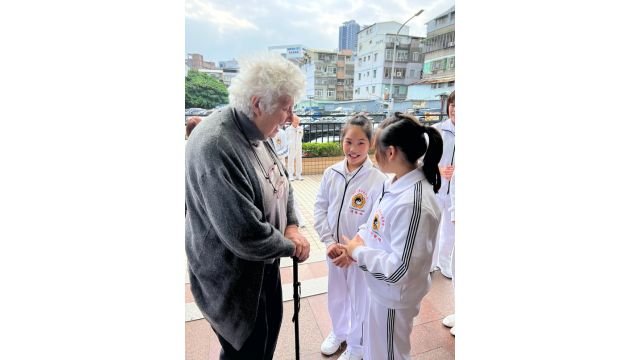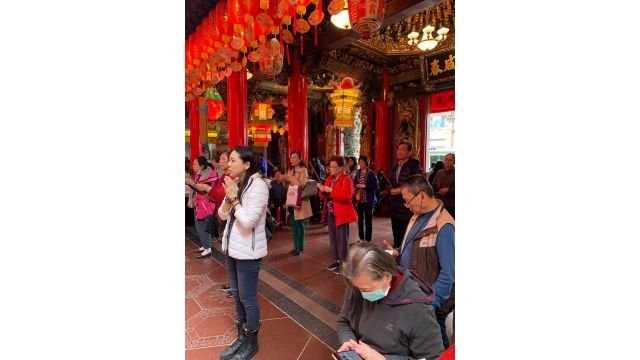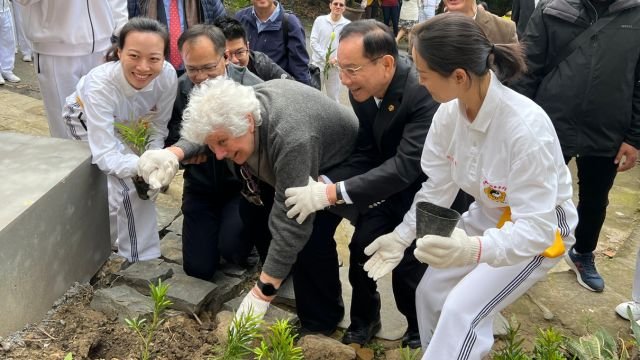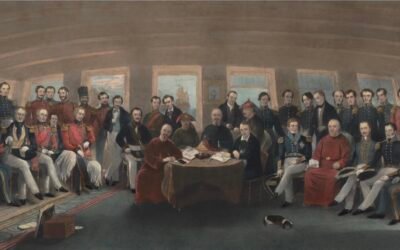I have experienced and loved many times the magic of Taiwan. But the Tai Ji Men case contradicts its promise of liberty.
by Eileen Barker*
*A video paper presented at the conference “End State Persecution and Implement Transitional Justice: The Tai Ji Men Case as an Example,” organized in observance of 228 Peace Memorial Day, Taipei, February 28, 2025.

When I was a child, my mother always encouraged me to give one of the six pennies that I received as pocket money to a charity. Among the options available was one for the people of Formosa. I had no idea where Formosa was or anything about it, but it seemed to me there was a kind of magic in the name and I imagined how one day I might go to this mysterious island which, I was sure, would be a very special place.
It was many, many decades later that this wish was fulfilled. By then, I had learned that it was now known as Taiwan and that its people had undergone many hardships, but after some radical reforms it had become a democratic state which celebrated the free expression of religions, including those banned in some countries.
I was not disappointed. Once out of the airport, I was struck by the number of temples, churches, and assorted places of worship—both large and tiny—and the number of posters and hoardings on the roadside advertising religions, including those banned in some other places. I was also enchanted by the sheer beauty of the country as I was driven to a village deep in the mountains where I was to spend several days, discussing the results of a survey of the religious and spiritual beliefs and practices of the Taiwanese people. Taiwan, it seemed, could be almost as magical as my childhood imaginings of Formosa.

It was not until several visits later I was to meet Dr. Hong Tao-Tze and the Tai Ji Men Qigong Academy and learn how, back in 1996, Dr Hong and some of his dizi (disciples) were imprisoned, having been accused by the Prosecutor of fraud because, it was incorrectly claimed, the Qigong Academy was a cram school and money donated to Dr Hong and the Academy, rather than being a gift, was taxable income. I was told how the Prosecutor sent the false indictment to the National Taxation Bureau, which resulted in the Bureau issuing tax bills. Then, despite the fact that Dr Hong had been pronounced innocent of any tax fraud, the Tax Bureau persisted in pursuing its demand for taxes. Even after a second ruling by the Supreme Administrative Court confirmed that Tai Ji Men was not a cram school, that the tribute from disciple to master was tax free, and that most of the claims had already been cancelled, the Bureau continues—to this day—to maintain the claim for the year 1992. Consequently, property bought by the Tai Ji Men on what it considers to be sacred land was seized, unsuccessfully auctioned off, and nationalized.
I have visited two of the properties that had been intended for Tai Ji Men self-cultivation centers, but which, because of the misuse resulting from their confiscation, have become ruined ghosts of what were to have been places where the spiritual traditions of the movement were to have been taught.

I have also visited the Taipei center and witnessed some truly impressive performances of martial arts and dance by the dizi.
It seems incredible to me that Dr Hong and Tai Ji Men, should, in a country with a reputation of respecting religious freedom, have undergone what can only be called persecution for so long. There are so many wonderful things Taiwan has to offer both its own citizens and the rest of the world. Surely this ridiculous situation cannot be allowed to continue? I do hope not.

Eileen Barker O.B.E. is Professor emerita of Sociology at the London School of Economics. She is widely regarded as one of leading contemporary sociologists of religion and the founder of the academic subfield of new religious movements studies. In 1988, she founded INFORM, the Information Network Focus on Religious Movements, with the aim of offering unbiased information on new religious movements to the media and the public.



